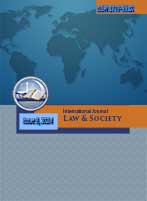The concept of «war» in the political and legal paradigm of the OUN
Keywords:
war, Organization of Ukrainian Nationalists, Ukrainian Insurgent Army, nationalism, national liberation struggleAbstract
In the article, through the prism of the theory and history of the state and law, the philosophy of law and geopolitics, the concept of «war» theoretically developed by the OUN and practically implemented by the UPA during World War II is considered.
A full-scale war today forces the historical, political and legal community of scientists to determine and crystallize in the current geopolitical situation the reasons for our state failures and to look for ways to get out of the crisis in construction on the Ukrainian ethnographic lands of the Ukrainian Cathedral Sovereign State.
Knowledge of the ideas of theorists of Ukrainian nationalism, activists, leaders of the OUN, creators and organizers of the UPA is necessary and useful for modern Ukrainian politicians and statesmen, leaders of the nation, to understand the ethnopolitical, nation-building and geopolitical problems of Ukraine. The ideas, theories and concepts of building an independent state would become a guide in the revival of the nation and its national liberation struggle today - the war for the independence and sovereignty of Ukraine.
The relevance of the problem lies in the fact that the OUN as a political organization of the nation, which continued the national liberation struggle of the Ukrainian Armed Forces, founded in 1920 as «the underground supra-party army of Ukraine, which put forward slogans understandable to all: for the independence of the Ukrainian state and the unity of the Ukrainian lands torn between the four occupiers [1, p. 3] did not immediately raise the slogan of war with the occupiers, but continued actions of passive and active resistance.
The Second World War, along with the latest technical support of the armies, which fundamentally changed the strategic and tactical face of the war, introduced another important element: territorial guerrilla and underground warfare.
Theoretical analysis of the nature and origin of wars defines and distinguishes a number of theories, among which biological, geographical, psychological, cosmopolitan and Marxist theories are the most influential. We, in our small intelligence, cannot conduct a deep philosophical and theoretical analysis of the origin of the war for independence, which Ukraine is waging today, but it is worth noting that in the current hybrid war it is not possible to single out a pure theory of its origin, causes and prerequisites. Thus, among geographic theories, the main causes of wars are defined as the struggle of geographically and economically constrained nations for «living space», and cosmopolitan theories assert that wars are inevitable as long as there are sovereign nations that will defend their interests, and Marxist theory reveals exclusively economic and class causes of war.
Analyzing and characterizing today, from the distance of 70 years of history, the struggle of the OUN-UPA for the independence of the nation and the state and comparing our guerrilla war with the same wars of other nations, it is necessary to admit that the experience and nature of the guerrilla war took other forms that met the requirements and the capabilities of the people.
This war even today forces the world to consider and respect our ability to fight, our readiness to protect national interests in the conditions that are formed by historical circumstances. At the same time, characterizing the achievements of the Army, we must objectively recognize that the successes in the war were the achievements of the entire nation, and the ideologist and leader of this struggle was the OUN, armed with the dominant ideology of Ukrainian nationalism.


